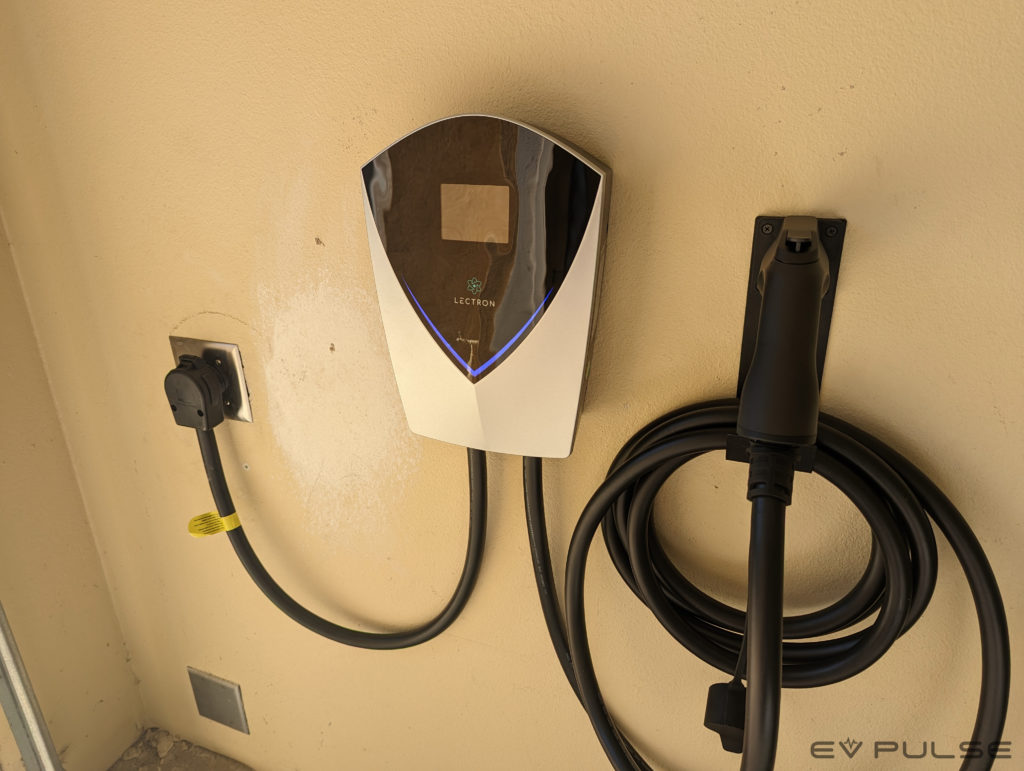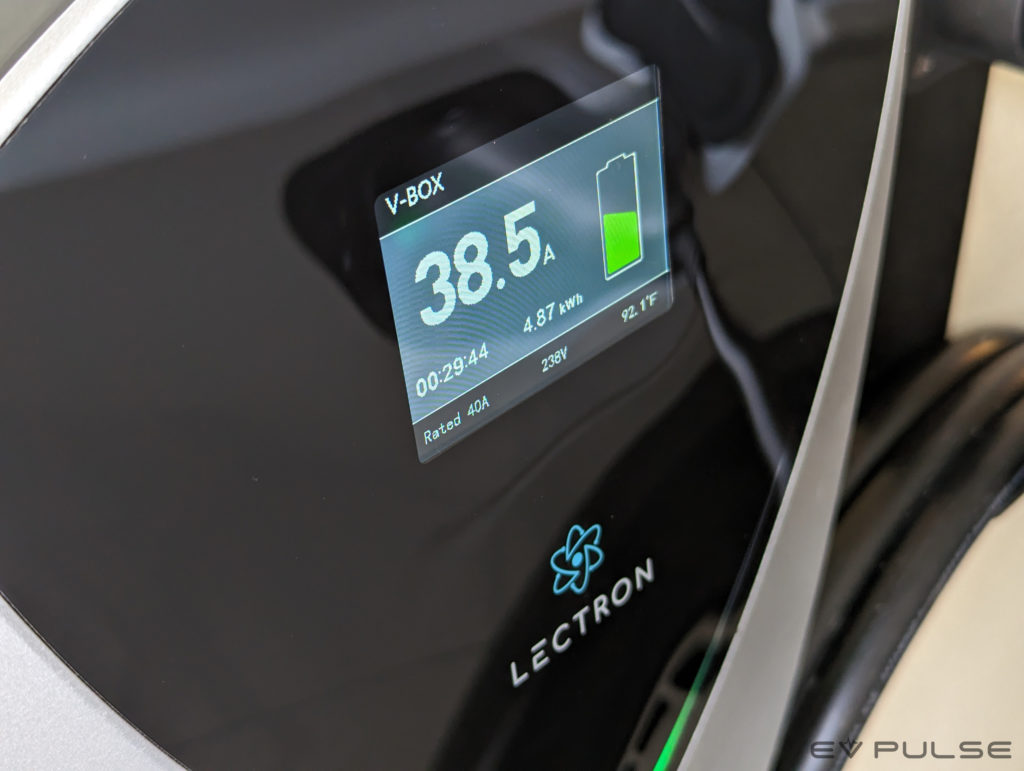So, you need a Level 2 charger for your EV, but what’s the best option? Is something with a NEMA 6-20 plug good enough or should you go the 14-50 route? What about a hardwired unit? Is this a smarter option or can you get away with the combo charger that may have come with your vehicle? There are lots of factors to consider.
Broadly speaking, when it comes to Level 2 chargers or bulkier but more feature-rich charging stations, there are two routes, you can get a plug-in unit, typically with a NEMA 6-20, 10-30 or 14-50 end that taps into a 240-volt outlet, or you can opt for a charger that hardwires directly into your home’s electrical system. Each of these setups has advantages and disadvantages.
Going the NEMA route can be more affordable and convenient. If you have an existing outlet in your garage, you just plug the charger in and you’re good to go. Intelligent socket splitters for NEMA 10-30 and 14-50 outlets are also available, so you can conveniently run, say, your clothes dryer and charge your car from the same power source without tripping a circuit breaker or needing to install a second outlet.

Another advantage of plug-in chargers is if you ever want to relocate the unit from one area to another, or if you move, you just unplug the thing and go. There’s no digging through electrical boxes to disconnect wires, which a lot of people won’t be comfortable doing.
Opting for a hardwired Level 2 charger is less convenient, but the big advantage is that they can provide faster vehicle charging. As its name suggests, the commonly used NEMA 14-50 plug puts out up to 50 amps of current, though the most powerful charger you can use is 40 amps. For safety reasons there’s this thing known as the 80% rule (but not this 80% rule!) that basically says continuous current draws shouldn’t pull more than 80% of a circuit breaker’s capacity. There needs to be a little breathing room. So, 80% of 50 is 40 amps. Make sense? Great!
Now, the standard J1772 connector for Level 1 and 2 charging supports up to 80 amps at 19.2 kW. This means hardwired chargers can deliver much more juice for quicker charging, though this speed advantage may only matter with vehicles that have huge batteries, like electric trucks including the Ford F-150 Lightning and GMC Hummer EV Pickup. To work, 80-amp chargers need dedicated circuits with heavy-duty wiring, which can cost a lot to install. Honestly, more affordable 32- or 40-amp plug-in chargers are perfectly fine for most EV drivers.
As for the various NEMA plugs you may run across – 6-20, 10-30 and 14-50 – each one has a different design. You’ll have to decide which option is right for you based on your situation and how quickly you need to charge. Overall, NEMA 14-50 is probably the best route, but you may already have a 6-20 or 10-30 outlet in your garage that you could plug into without having to run a new line from your electrical panel. Either of those provide more-than-respectable performance that is miles ahead of pokey Level 1 charging.

Now, aside from all that, with certain electric vehicles, you may not have to worry about buying a Level 2 charger at all. Some of them come standard with clever combination chargers that support either Level 1 or Level 2 charging. Basically, you just swap the end and you’re good to go. These units may not charge as quickly as a dedicated Level 2 charger, and you may prefer leaving the factory hardware in your vehicle’s trunk so you have it in case of emergency, but these included units can absolutely be your everyday charging solution if you don’t want to spend extra money.
When it comes to Level 2 chargers, most drivers will probably be happiest with a NEMA 14-50 plug-in unit because of their portability and ease of use, but a hardwired charger is a great option as well, as is the included unit if your EV came with one.
